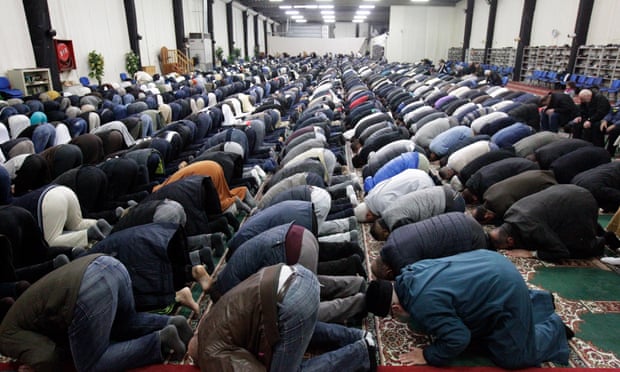9 things you probably didn't know about Ramadan...
During the month of Ramadan, which begins on June 6, you may notice your Muslim friends and coworkers politely excusing themselves from lunch engagements and turning toward their spiritual communities. It’s a time of heightened spirituality for many Muslims, characterized by much more than just hunger pangs.
It’s a time of spiritual reflection, not just fasting.
Many Muslims experience Ramadan as a time of deep spiritual reflection and personal growth. Fasting from bad habits “affords the peace of mind that allows you to think clearly and rationally without being clouded by overwhelming emotions,”wrote Muslim Public Affairs Council fellow Marwa Abdelghani. “It allows you to be productive instead of spending time thinking about grievances in your life that can make you angry or depressed. Ramadan is an opportunity to forgive, let go, and focus on what is most important.”
Muslims fast from gossiping, lying and other bad habits during Ramadan.
Muslims don’t just fast from food, water and sex during Ramadan. They also abstain from lying, swearing, gossiping, arguing and otherwise engaging in bad habits. “The fast is not simply about denying your body food and water,” writes The National’s Saeed Saeed. “It also involves arguably the more taxing challenge of avoiding ill speech, arguments, loss of temper and malicious behavior. The whole point of the fast is to demonstrate submission to God and keep the mind focused on a spiritual plane.”
Ramadan celebrates the very origins of Islam.

Lailat ul Qadr falls toward the end of Ramadan and celebrates the night the Qur’an was revealed to the Prophet Muhammad. Muslims believe that praying on this day is better than a thousand months of worship.
Ramadan is often called the “month of the Qur’an.”
Ramadan is often referred to as the “month of the Qur’an” because during this time, Muslims attempt to recite as much of the Qur’an as they can. Mosques will frequently recite one thirtieth of the Qur’an each night.
Not all Muslims fast for Ramadan.
Although fasting is one of the five pillars of Islam, children and those who are ill, elderly, pregnant, breastfeeding, menstruating or traveling are not required to fast. Those who are able may choose to make up the fast at a later date or pay fidiya, meaning they will feed one person in need for each day they have missed.
Some people favor small, healthy meals over binging.
Though some choose to binge before and after each day’s fast, many Muslims encourage eating small, healthy meals that won’t interfere with the spirit of Ramadan. “Feeding our egos with so much of the material world will never give us the opportunity to seek out only what we need, but keeps us thinking we should have whatever we want,” Abdelghani writes. For health reasons, Muslims are encouraged to limit sugary and fried foods and instead opt for slow digesting foods like barley, wheats, oats and lentils.
Some experience health benefits from fasting.

Some Muslims who fast for Ramadan experience positive benefits over the month. If done correctly, the short bursts of fasting observed during Ramadan can release endorphins that improve mental well-being, according to a report by the NHS. “A detoxification process also occurs, because any toxins stored in the body’s fat are dissolved and removed from the body,” said Oxford anesthetist Dr. Razeen Mahroof in the report.
Many people give more to charity during Ramadan.

Giving money to charity is one of the Five Pillars of Islam — and Muslims frequently give more during Ramadan than in any other month of the year.
Muslims don’t want you to feel bad for them.
“Don’t feel sorry,” Abdelghani writes. “Although fasting can make me sleepy and tired, the return on investment is absolutely thrilling.”
Opinion in comments please!!!
image source Google images


Comments
Post a Comment